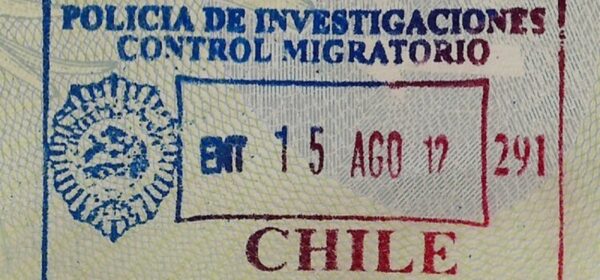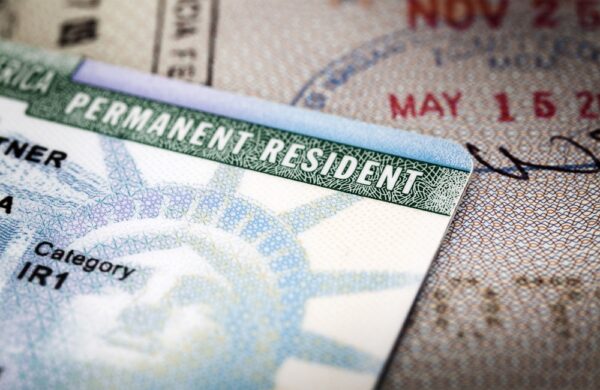Looking for the perfect destination to relocate to? Immigration to Luxembourg has become easier and is now open to both European and non-European nationals. Luxembourg is one of the European countries with many residential benefits. Located between Belgium and France, Luxembourg is commonly regarded as the financial hub of the European Union.
With world-class healthcare, an excellent educational system, and a rewarding job market, Luxembourg has much to offer. However, before packing your bags, you need to understand the visa options, requirements, and process involved in relocating to Luxembourg. This Luxembourg immigration guide will help you break down the visa requirements and application process.
Benefits of Living in Luxembourg
Immigration to Luxembourg comes with excellent benefits. Here are the top 5 reasons that will convince you to move to this part of Europe.
1. Amazing Living Quality
Luxembourg is one of the best places to live in Europe, thanks to its exceptional standard of living. It's a country with clean and lush greenery, beautiful architecture, excellent public services, and clean air. What if you live where you don't have to worry about transportation? Yes, you read that correctly. Living in Luxembourg means enjoying free public transit, including trains, trams, and buses. Irrespective of your reason for moving countries, Luxembourg offers a good life quality.
2. Job Opportunities
Luxembourg should be on your list of potential destinations if you're relocating abroad. It offers the best to international workers looking for global career opportunities. With a strong job market, especially in sectors like tech, finance, engineering, and logistics, you will thrive if you have skills related to any of these sectors. The job security that immigration to Luxembourg offers makes it one of the countries job seekers look forward to.
3. Good Salaries
You thought great job opportunities were all? Well, no. Luxembourg is one of the European Union countries with significantly high salaries. Its competitive salaries and thoughtful compensation packages serve as a boost for employees to live comfortably and put in their best while working.
4. Safety
Safety is a priority for everyone, and Luxembourg is one of the safest places in the world. Crime and violence are out of the conversation regarding living in Luxembourg. Whether walking through the streets of Beliar at night or hiking through the Mullerthal Trail, you can do that without fear of harm or getting hurt.
5. World-Class Healthcare System
The Luxembourg healthcare system embodies high-quality, accessible care. For ease and relief, the government has made health insurance mandatory for all local and foreign residents through the Caisse Nationale de Sante (CNS) service, which covers most medical services. The CNS offers universal access, meaning you can use the healthcare provider of your choice.
Ways to Immigrate to Luxembourg

When picking a visa, the first thing you should do is acknowledge the reason behind your relocation. This way, you can choose the visa that suits that purpose. Are you visiting briefly, relocating to Luxembourg for work, or pursuing an international degree there?
If you are considering immigrating to Luxembourg, there are several ways to go about it. We'll break down the various types of visas so you can compare and pick the best one.
A. Short Stay (Type C) Visa
This is the right visa if you're staying in Luxembourg for less than 90 days, as this visa has a maximum validity of 90 days. This short-stay visa is offered for different purposes, and short-stay visa holders can do the following:
- Visit family and friends in Luxembourg
- Go for a short-term study or language class
- Travel as a tourist to explore Luxembourg
- Participate in sports events organized in Luxembourg
- Attend business-related events or conferences
Since it's a short-term visa, the application is straightforward, and the visa processing time is short. To ensure a smooth process, submit your application at least 15 days before your trip.
B. Long Stay (Type D) Visa
A long-stay visa is required when you're staying in Luxembourg for more than 90 days. Since you will be staying in Luxembourg for a long time, you will need a residence permit for a long-stay visa. The Type D visa is divided into various categories, each based on your travel intent.
1. Moving as a Student
When it comes to research, Luxembourg is home to top-tier universities that value research. If you're looking for a great destination to study in the European Union, try Luxembourg. A study visa is open to EU/EEA nationals and non-EU/EEA nationals who have been accepted to a full-time program in any recognized academic institution in Luxembourg.
If you've sorted out your admission, you can apply for a temporary Authorization to Stay (ATS). Once your ATS is approved, you can then apply for a type D visa. Also, a declaration of arrival and a student residence permit application must be made upon arrival.
2. Moving for Research Purposes
Going to Luxembourg for research purposes and professional activities? Then you need an entry visa. To get a visa as a researcher, a recognized research institute or academic body must host you. For this visa, your host has a part to play. You and your host must jointly sign a hosting agreement.
This agreement must include the project's goal, duration, and funding plan. Likewise, the invited researcher must be able to provide qualifications backing their role as a researcher. Once this is sorted, you, as a researcher, can apply for the type D visa. Upon arrival, you must make a declaration of arrival and apply for a residence permit. You must also submit details such as the researcher's ID, start date, and institute information.
3. Moving for Business, Self-Employed, or Entrepreneur activities
To enter Luxembourg as a foreign self-employed worker from a third country, you must meet some conditions. You must apply for the Temporary Authority to Stay (ATS). During your ATS application, you must prove you have what it takes to set up a business, invest, or carry out any entrepreneurial activity in Luxembourg. As a self-employed person, you must prove that you have the qualifications and the financial capacity to back it up. Additionally, any business activity you undertake must be in the country's best interest.
If the self-employed activity you want to do in Luxembourg requires a business permit, you must apply for one and include it in your ATS application. The same applies if you need authorization or accreditation.
4. Moving for Employment reasons
This visa category is one of the common Luxembourg immigration channels, as many foreign nationals look forward to working there. To apply for a Luxembourg work visa and enter the country for work reasons, you must have an employment contract and get a work permit, especially if you're from a third country, i.e., a country outside the European Union. Citizens from the European Union (EU) and the European Economic Area (EEA) do not need a work permit to work in Luxembourg.
If you're considering immigration to Luxembourg for long-term work reasons, you need to secure a job letter from a Luxembourg employer. This means you must get a work visa sponsorship from your employer to make an application. Your employment offer is your ticket to working in Luxembourg. Not only that, but your employer must also be able to prove that no one in the country can fill the available role, hence the need to employ a foreign national.
As a foreign worker, your employer is responsible for applying for your work permit with the Luxembourg Ministry of Foreign and European Affairs. Once your permit is issued, you can apply for a Type D visa, and upon arrival, you must apply for a resident permit and do a medical examination.
5. Moving as a Highly Skilled Professional
If you hold a high professional qualification and have relevant experience, you may be eligible for the EU Blue Card. The EU Blue card, also known as the Highly Qualified Worker visa, is for highly skilled professionals from third countries and offers numerous benefits. To secure an EU Blue Card, you must get a residence permit from the Employment and Immigration Department. One of the requirements is to demonstrate a higher education qualification and at least 5 years of professional experience, which you will provide during your temporary Authorization To Stay (ATS) application.
Your temporary ATS application must be submitted online to the General Department of Immigration of the Ministry of Home Affairs. This must be submitted alongside your curriculum vitae, certification, and other additional documents, after which you can apply for the Type D visa. Once in the country, you must declare arrival, go for your medical examination, and apply for a resident permit.
One crucial requirement to qualify for an EU Blue Card is that the job role you will take on pays at least €63,408 annually. Another thing to consider is that your job role should align with your qualifications. In addition, your potential employer must go through the National Employment Agency to notify them of the vacant position before recruiting you.
Document Required for a Luxembourg Visa Application
The documents required for immigration to Luxembourg vary depending on the type of visa you are applying for. But here are the general requirements for all visa types: you need the following:
- Completed visa application form
- A Passport valid for at least 3 months beyond your stay and other travel documents.
- Recent passport photographs
- Proof of purpose of stay, such as an admission letter, employment letter, etc
- Proof of accommodation
- Travel medical insurance
- Clean criminal record ( for long-stay visa)
Application for a Luxembourg Immigration Visa
When applying for a Luxembourg immigration visa, it's important to plan ahead, get your documents together, and understand the process before applying. Here is a highlight of the Luxembourg immigration process:
1. Determine the Visa Type You Need
The first step in your application is to ensure you're clear about the type of visa you're applying for and the purpose of your travel, whether for work, study, or business.
2. Get Your Authorization to Stay (ATS)
If you're applying for a long-term visa, the ATS is important as it precedes your visa application. You have to apply for one, wait for approval, and once approved, you will get a formal letter that you will need for your visa application.
3. Schedule an Appointment at the Embassy
Once your ATS has been approved, schedule an appointment with the Luxembourg embassy or consulate in your country of origin to begin your visa application.
4. Pay Your Visa Fees and Submit Your Application
After securing an appointment, the next thing to do is to submit your completed application form along with the required documents. Also, remember to pay the visa fee; it's an important requirement for your application.
5. Wait for a Decision
After submitting your application, wait for the processing time and a decision on your application. After approval, you will get a visa sticker stamped on your passport, which grants you access to Luxembourg.
6. Register in Luxembourg
Upon arrival, you must get a residence permit and undergo a medical check-up. Once you've completed all these steps, you can officially begin your stay in the country.
Visa Processing Fees
Visa fees are based on the visa type, whether it is a long-term or short-term visa and the applicant's age. For adults, a short-stay visa costs €80, and for children between 6 and 12 years old, it costs € 40. The visa is free for children under 6 years old. On the other hand, the Long-stay visa type has a flat rate of €50.
Processing Time
The processing time for a short-stay visa is 15 calendar days; however, it may take longer if further verification is required or if your documents are incomplete. On the other hand, the processing time for a long-stay ATS usually takes 1 to 3 months. Once granted, your visa issuance should take an additional 2 to 4 weeks, resulting in a total processing time of approximately 4 months.
Conclusion
Moving to Luxembourg is a step toward an exciting future. Whether you are a student, employee, or entrepreneur, Luxembourg has a welcoming ambiance that puts you at ease. If you're ready to immigrate to Luxembourg, you should start early, organize your documents, follow all necessary procedures, and get ready to become a resident of Luxembourg.
















